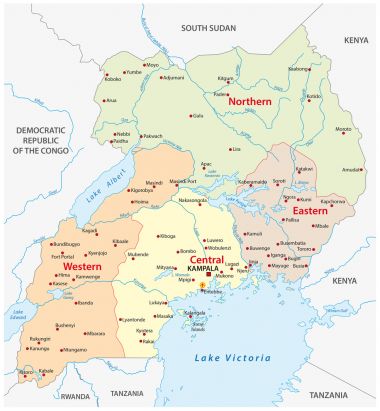Christian students slaughtered in attack on high school in Uganda

Islamist terrorists on the night of June 16 killed at least 37 students, most of them Christians, at the dormitories of a private high school in Uganda, and kidnapped six others, sources said.
Shouting the jihadist slogan "Allahu akbar [God is greater]," according to the BBC, the assailants killed the students at Lhubiriha Secondary School in Mpondwe, Kasese District, hacking the girls with machetes and burning the boys to death by setting their dormitory on fire. Five non-students at the school were also killed, Ugandan officials said, and four students were wounded.
A survivor, student Edgard Mumbere, told Morning Star News that armed assailants shouted for the boys to open their dormitory door, with one attacker saying, "This school is propagating Christianity in Uganda and getting support from Christians in the West – Islam should be the dominant religion in Uganda."
The boys kept silent while one student went to peek out the door, Mumbere said. The student rushed back saying the attackers were armed with machetes, axes and guns.
"This prompted us to hide under the beds, and shortly we heard gun shots followed by fire on dormitories," Mumbere told Morning Star News. "They threw a bomb on our dormitory, and the whole room was full of smoke, and we couldn't breathe. Some of us managed to get out of the dormitory but were shot and managed to survive bad injuries."
Mumbere said initially he found a way to climb up to the ceiling area and hid there, but he fell down from too much smoke.
"I tried to smear blood on my face and whole body, and I pretended to be dead," he said. "One came and checked and saw nothing, and that is how I survived."
Most of the victims belonged to fellowships of the Church of Uganda, Crossway Church, Kasese Pentecostal Church, All Saints Kasese Town, Independent Baptist Church and Kasese Central Baptist Church, a Morning Star News contact said.
Mpondwe is close to Uganda's border with the Democratic Republic of Congo (DRC), where the Islamic State affiliate Allied Democratic Forces (ADF) is based, and Uganda President Yoweri Museveni on June 17 blamed an ADF splinter group for the atrocity. Neither the ADF nor the Islamic State took responsibility for the massacre as they normally would, and First Lady Janet Museveni, who is also Education Minister, said at a press conference that parties seeking to take over the school might have used the terrorists to achieve their ends.
President Museveni said the success of a joint Ugandan-DRC effort to defeat the ADF had compelled the group to attack a "soft target" on the Uganda side of the border.
"It is safer for them to splinter into small groups which, they hope, may not be seen by our eyes," he told local press. "That is how their desperate, futile, criminal and terrorist schemes come in. They start imagining that if they flee Congo, re-enter Uganda, kill people that are not armed (soft targets), that action would force us to recall our army from Congo to defend the Uganda villages, and that would save them from the losses they are now suffering."
Police have reportedly arrested at least three people in the course of ongoing investigations.
A pastor at Crossway Ministries Churches in Kasese said great fear among Christians has swept across the area. The families of the deceased requested financial support and prayer.
The ADF is considered one of the most lethal of more than 120 armed groups in the eastern DRC. Originally based in western Uganda, the ADF has operated in the DRC's North Kivu Province near the border since the late 1990s.
In 2019 the ADF split into two factions, with one merging into the Islamic State Central Africa Province. The U.S. government in 2021 designated the ADF as a foreign terrorist organization with links to the Islamic State.
The June 16 attack was the latest of many instances of persecution of Christians in Uganda that Morning Star News has documented.
Uganda's constitution and other laws provide for religious freedom, including the right to propagate one's faith and convert from one faith to another. Muslims make up no more than 12 percent of Uganda's population, with high concentrations in eastern areas of the country.











